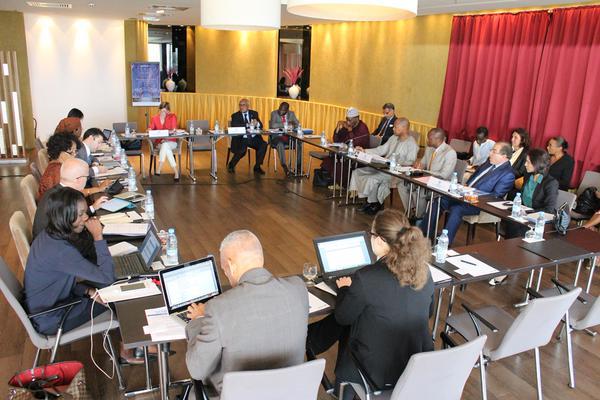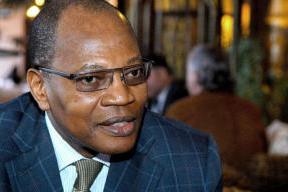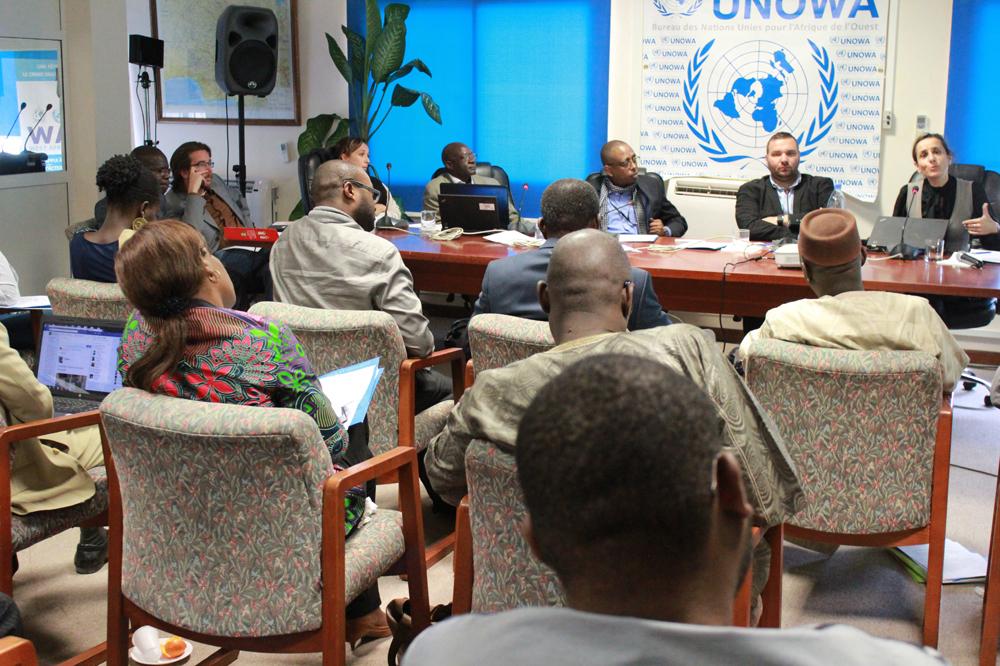21 October 2010 – Secretary-General Ban Ki-moon today reiterated his pledge to empower women, underlining the crucial role they play in peacemaking, peacekeeping and peacebuilding.
"Whether we are discussing sustainable development, public health or peace, women are at the core," he told participants at the Global Open Day on Women and Peace and Security held at United Nations Headquarters in New York.That event showcased recommendations that emerged from dozens of so-called Open Days held in countries in the midst of conflict or emerging from violence, seeking to enable direct dialogue among women's peacebuilding groups, women community leaders and senior UN leadership in these nations.
Mr. Ban noted today that these meetings shed light on women's perspectives and helped to pinpoint areas of common concern and divergence, thanking all of the women who took part in the Open Days for their candour.
The recommendations, he said, show that "we have a long way to go."
The Secretary-General pointed to two "landmark" steps in promoting women's rights. Firstly, the 1995 Beijing Platform for Action, he said, recognized that women's full participation is crucial to preventing and resolving conflict, as well as maintaining peace.
Then, in 2000, the Security Council passed resolution 1325, which linked women, peace and security, and also set up a framework to guide the UN's actions and policies.
"But today we must admit that we have failed to build sufficiently on these conceptual foundations," Mr. Ban said.
"Women still face obstacles to engagement at all stages of the peace process. Sexual violence remains an all-too-common tactic of war and often continues well after the guns fall silent."
His Special Representative on Sexual Violence in Conflict, Margot Wallström, is endeavouring to raise awareness and spur action on the issue.
"But, on this tenth anniversary of 1325, even as we acknowledge where we are falling short, let us also recognize where we have moved forward," the Secretary-General said.
"Advancing the cause of women, peace and security must be integral to our peacemaking, peacekeeping and peacebuilding efforts, not an afterthought," he emphasized.
Mr. Ban expressed hope that the newly-created UN Women will help the world body implement resolution 1325 through better coordination and enhanced activities in the field.
UN Women merges four UN entities: the UN Development Fund for Women (UNIFEM), the Division for the Advancement of Women (DAW), the Office of the Special Adviser on Gender Issues, and the UN International Research and Training Institute for the Advancement of Women (UN-INSTRAW).
Established in July by a unanimous vote of the General Assembly, the first UN super-agency on female empowerment will oversee all of the world body's programmes aimed at promoting women's rights and their full participation in global affairs.
Addressing reporters at a press conference on the 10th anniversary of the historic resolution, Anne Marie Goetz of UNIFEM today pointed out that three goals were consistently expressed during the 27 Open Days held around the world.
First, she said, women said they need to participate in making decisions on their future, be it at peace talks, elections or donor conferences, while secondly, they urged justice and security sector reform, stressing, "we need to be safe." Lastly, women underscored the need to improve their situation regarding employment, land rights and economic security.
Ms. Goetz also pointed to the "gigantic problem" of resources, with UNIFEM research finding that less than 6 per cent of post-conflict spending addresses women's needs.
Speaking at the same briefing, Said Djinnit, Secretary-General Ban Ki-moon's Special Representative and head of the UN Office for West Africa (UNOWA), told reporters that all of the region's countries will have a national plan of action on resolution 1325 by the end of this year.
Yesterday, the UN Population Fund (UNFPA) launched a new report that found that discrimination against women not only exposes them to the worst effects of disaster and war, including rape, but also deprives their countries of a prime engine for recovery.
The State of World Population 2010 "is about the three Rs: resilience, renewal and redefining roles between boys and girls and men and women," Executive Director Thoraya Ahmed Obaid said at the official launch in London of the report, which uses stories of individuals affected by conflict or catastrophe in Bosnia and Herzegovina, Haiti, Iraq, Jordan, Liberia, the occupied Palestinian territory, Timor-Leste and Uganda to bring home its message.
It shows how communities and civil society are healing old wounds and moving forward, while stressing how much more still needs to be done to ensure that women have access to services and have a voice in peace deals or reconstruction plans.
"Whether we are discussing sustainable development, public health or peace, women are at the core," he told participants at the Global Open Day on Women and Peace and Security held at United Nations Headquarters in New York.That event showcased recommendations that emerged from dozens of so-called Open Days held in countries in the midst of conflict or emerging from violence, seeking to enable direct dialogue among women's peacebuilding groups, women community leaders and senior UN leadership in these nations.
Mr. Ban noted today that these meetings shed light on women's perspectives and helped to pinpoint areas of common concern and divergence, thanking all of the women who took part in the Open Days for their candour.
The recommendations, he said, show that "we have a long way to go."
The Secretary-General pointed to two "landmark" steps in promoting women's rights. Firstly, the 1995 Beijing Platform for Action, he said, recognized that women's full participation is crucial to preventing and resolving conflict, as well as maintaining peace.
Then, in 2000, the Security Council passed resolution 1325, which linked women, peace and security, and also set up a framework to guide the UN's actions and policies.
"But today we must admit that we have failed to build sufficiently on these conceptual foundations," Mr. Ban said.
"Women still face obstacles to engagement at all stages of the peace process. Sexual violence remains an all-too-common tactic of war and often continues well after the guns fall silent."
His Special Representative on Sexual Violence in Conflict, Margot Wallström, is endeavouring to raise awareness and spur action on the issue.
"But, on this tenth anniversary of 1325, even as we acknowledge where we are falling short, let us also recognize where we have moved forward," the Secretary-General said.
"Advancing the cause of women, peace and security must be integral to our peacemaking, peacekeeping and peacebuilding efforts, not an afterthought," he emphasized.
Mr. Ban expressed hope that the newly-created UN Women will help the world body implement resolution 1325 through better coordination and enhanced activities in the field.
UN Women merges four UN entities: the UN Development Fund for Women (UNIFEM), the Division for the Advancement of Women (DAW), the Office of the Special Adviser on Gender Issues, and the UN International Research and Training Institute for the Advancement of Women (UN-INSTRAW).
Established in July by a unanimous vote of the General Assembly, the first UN super-agency on female empowerment will oversee all of the world body's programmes aimed at promoting women's rights and their full participation in global affairs.
Addressing reporters at a press conference on the 10th anniversary of the historic resolution, Anne Marie Goetz of UNIFEM today pointed out that three goals were consistently expressed during the 27 Open Days held around the world.
First, she said, women said they need to participate in making decisions on their future, be it at peace talks, elections or donor conferences, while secondly, they urged justice and security sector reform, stressing, "we need to be safe." Lastly, women underscored the need to improve their situation regarding employment, land rights and economic security.
Ms. Goetz also pointed to the "gigantic problem" of resources, with UNIFEM research finding that less than 6 per cent of post-conflict spending addresses women's needs.
Speaking at the same briefing, Said Djinnit, Secretary-General Ban Ki-moon's Special Representative and head of the UN Office for West Africa (UNOWA), told reporters that all of the region's countries will have a national plan of action on resolution 1325 by the end of this year.
Yesterday, the UN Population Fund (UNFPA) launched a new report that found that discrimination against women not only exposes them to the worst effects of disaster and war, including rape, but also deprives their countries of a prime engine for recovery.
The State of World Population 2010 "is about the three Rs: resilience, renewal and redefining roles between boys and girls and men and women," Executive Director Thoraya Ahmed Obaid said at the official launch in London of the report, which uses stories of individuals affected by conflict or catastrophe in Bosnia and Herzegovina, Haiti, Iraq, Jordan, Liberia, the occupied Palestinian territory, Timor-Leste and Uganda to bring home its message.
It shows how communities and civil society are healing old wounds and moving forward, while stressing how much more still needs to be done to ensure that women have access to services and have a voice in peace deals or reconstruction plans.





